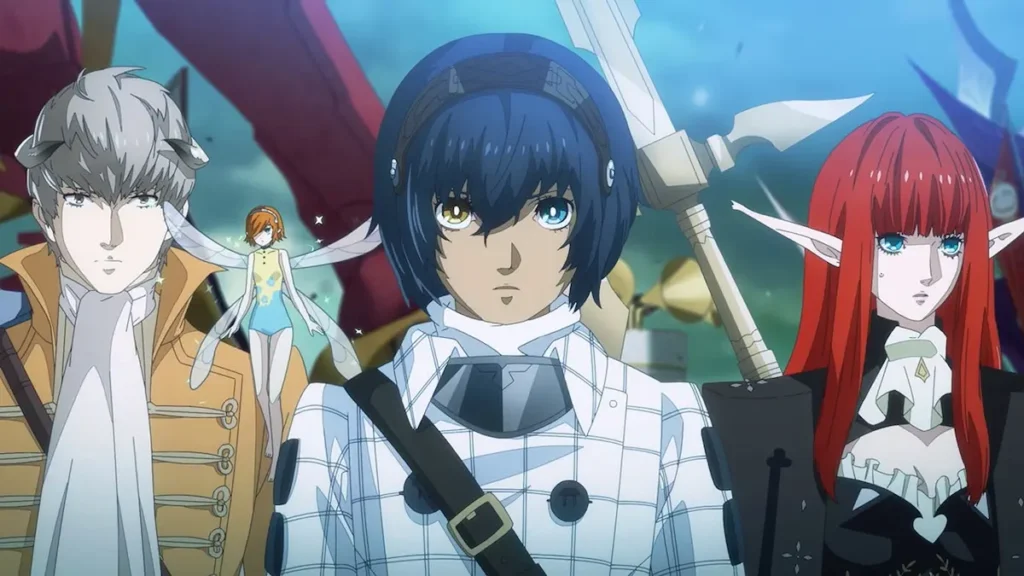Atlus’ latest RPG, Metaphor: ReFantazio’s massive 80-hour narrative that mixes fantastical elements with political and social commentary.
The book which the game’s protagonist receives throughout his journey of the fictional United Kingdom of Euchronia is a novel with a utopian description of a world of skyscrapers and legal equality.
Metaphor pushes beyond being a game about magical battles and becomes a story about seeking a better future in the face of wholesale injustice, driven by this utopian vision of the protagonists. From the get go, it grabs you with its deep and challenging narrative.
The game is not merely a stage, but a reflection of our own world’s societal issues. When players first step into Grand Trad’s capital city, they are shown grim pictures of injustice, notably the public execution for no trial of a beast like Paripus.
It’s a cruel reminder of the cruel power of the world and its harsh power dynamics, where certain races such as the despised Elda, become scapegoated as a reason for the very sinister creatures that threatens the society of the rest.
With its clear bias or prejudice and misuse of power, the tone of a narrative that asks difficult questions about societal structure and the people who suffer under it.
While Atlus’s games, like Persona, like to use supernatural metaphors, Metaphor: ReFantazio does it a little more directly, exploring the themes of inequality and prejudice through dystopian tropes.
Players are reminded about the idealized world the protagonist obtains as he reads his novel—that is a symbol of a dream world—while it is continuously contravened by reality.
This duality reflects real-world dilemmas: the game’s characters openly discuss whether a utopia is even possible, and achieving a utopia necessitates the elimination of cultural history.
A unique political system is at the heart of Metaphor. The game isn’t played through traditional democratic process, instead, there’s a magical force that decides who will be the next ruler reading the hearts of Euchronia’s citizens.
After antagonist Louis Guiabern assassinates the king and attempts to seize power, the protagonists journey gets mixed in with this election. But the king casts a spell that ruins Guiabern’s plans and decrees that the king who will rule be decided by only the will of the people.
The gameplay is brought to a political twist by this political system. The election is won on the idea that relationships built throughout this country don’t play in anymore — they play a critical role in the election, as players work to win this country’s hearts and minds.
Unlike many RPGs, Metaphor stresses that grassroots support is key, a focus on how often power stems from those at the very bottom rungs of the social ladder, only to be forgotten when rulers climb to the throne.
Metaphor: ReFantazio is a mixed bag while containing plenty from Atlus’ previous titles, it genuinely does improve on the majority of them.
The standout feature, and it’s very refined social mechanic system, is far smoother and less on the nose than Persona’s bloated relationship building.
Metaphor certainly does a good job of providing a thoughtful, unique perspective with each follower. Examples of such characters are Maria, daughter of a soldier, and Bardon, local leader, who make the world feel richer, helping ground the fantasy in human experience.
In comparison to the traditional 10 encounters per character that you might expect of a Persona game, social interactions here are short and fast with only eight interactions per character.
The brevity of it makes it feel more meaningful, and there’s less of the junk that takes up the time. The deeper the connection to the world with its people the stronger the build of the protagonist in each interaction, even with the least important character, important.
Conclusion
Metaphor: ReFantazio – With a rich fantasy world and a grounded narrative, exploring real world social and political issues, it welds fantasy with the grounded.
The game itself also uses its innovative mechanics and well written characters to, challenge the player to think critically about powers, prejudices and ability to change.
Despite its fantastical setting, Metaphor delivers a timely message: progress is slow, change is difficult but action is necessary if we want the world to be a better place.
Also read: God of War Ragnarok PC Review

